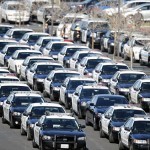Police Response in Kuwait (via OSAC)
 Kuwait’s Ministry of Interior (MOI) maintains a visible police profile with uniformed and plainclothes officers deployed in key locations for response and deterrence. Each district and governorate has police stations operating under the direction of the MOI Directorate of Public Safety.
Kuwait’s Ministry of Interior (MOI) maintains a visible police profile with uniformed and plainclothes officers deployed in key locations for response and deterrence. Each district and governorate has police stations operating under the direction of the MOI Directorate of Public Safety.
U.S. citizens are subject to the country’s laws and regulations, which can differ significantly from those in the United States. Violating Kuwaiti law can result in detention, arrest, prison sentence, fines, and/or deportation. Examples of crimes include possession, use, or trafficking of illegal narcotics, pork, firearms, counterfeit goods, and alcohol.
Photographing government and public buildings, military installations, and economic infrastructure, particularly that related to the oil industry, is against the law. Humiliating/insulting a person, including a police officer or a public official, is a crime similar to disorderly conduct or harassment in the U.S. Proselytizing is prohibited for all religions except Islam. Non-payment of traffic violations or other outstanding debts owed to Kuwaitis may result in travel bans preventing individuals from exiting Kuwait.
If arrested or detained, U.S. citizens should request to speak with the duty officer at the U.S. Embassy through the switchboard operator at (965) 2259-1001. Do not assume your arrest has been reported to the U.S. Embassy. A consular officer will visit the U.S. citizen within 24-72 hours of the initial notification.
Dial 112 to contact police, fire, and ambulance emergency services. Police response to requests for assistance to Americans is generally good. U.S. citizens who do not speak Arabic should request assistance from a bilingual Arabic/English switchboard operator. Be mindful that emergency switchboard operators do receive prank calls frequently and may hang up, if they do not understand the caller. In such cases, callers are advised to call again.
The police accept crime reports at the police station with jurisdiction over the area where the crime occurred. If filing a crime report, it is advisable that the U.S. citizen be accompanied by a person who speaks Arabic and/or by a local attorney; all testimonies must be rendered in Arabic. Filing a crime report can take several hours, as a police investigator will take the victim’s statement orally while composing his investigative report. Although many police investigators are fluent in English, those who do not speak Arabic should be reminded to have an Arabic translator present. In all cases of abuse, the victim must obtain a medical report from a Kuwaiti hospital in order to file a police report.
Source : OSAC
Kuwait News
- Events in Kuwait
- Infoconnect 2015 , Kuwait
- Gulf Run Cars Show at 360 Mall , Kuwait
- Kuwait Riders – Bikes Show , Kuwait
- Royal Cricket Academy , Kuwait
- Lecture on ” Use technology to make your life easier “
- 6th Blood Donation Drive by PBDIK on 30th Jan 2015
- The Exploitation of Expats in Kuwait
- Man entered in the restaurant without clothes
- Desert Run , Kuwait
- Lecture on The art of engagement at Beit al Sadu , Kuwait
- Lecture on Islamic Architecture , Kuwait
- The Marina Market , Kuwait
- Sony Bazzar , Kuwait
- Top ten nationalities (in expats) who violated the law in 2014 (via Arabtimes)
- Photos & Videos : Bohemia in Kuwait @iambohemia
- Blood Drive to save Life by Kuwait Riders (Blood Donation Camp)
- Over 30 years service expats to have terminated from jobs , Kuwait
- Attestation suspended of Bank Guarantee for “Indian Domestic Workers” In Kuwait
- Firework 2015
- Volkswagen XL1 in Kuwait

Filed in: All • Expats in Kuwait • Info • Local News







